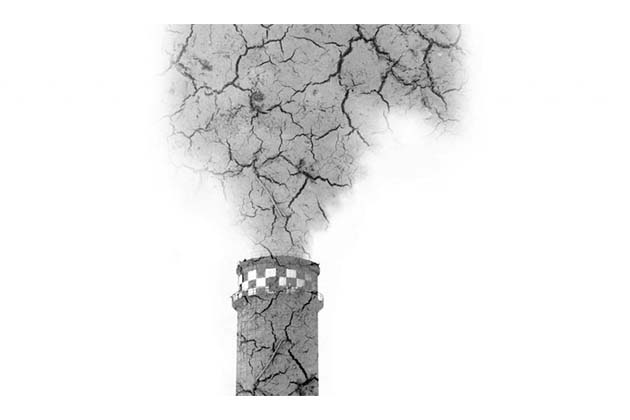Study shows the severe effects of climate change on air pollution thus further impacting mortality worldwide
A new study has shown that future climate change if left unaddressed has the potential to cause approximately 60000 deaths globally by the year 2030 and more than 250,000 deaths in 2100 due to its powerful impact on air pollution.
The study published in Nature Climate Change has added to the growing number of reports and evidences pointing at the various negative outcomes of changing climate and that it’s high time it is considered a “real phenomena” and not a “myth”. This study carried out by Professor Jason West and his team at University of North Carolina at Chapel Hill, USA is the most comprehensive study on how climate change will have an impact on global health via air pollution because researchers have utilized results from several worldwide climate change modeling groups.
Ensemble of models used for analysis
Researchers have used several collaborative global climate models (United States, United Kingdom, France, Japan and New Zealand) to determine the approximate number of premature deaths that would occur in 2030 and 2100 due to ground-level ozone and fine particulate matter (specially PM 2.5). In all of these models they assessed likely changes in ground-level air pollution which could be directly attributed to future overall climate change.
These changes were spatially overlaid onto the global population thus taking into account population growth as well as the probable changes that point towards increased susceptibility to air pollution. Results show that climate change is expected to cause an increase in air pollution-related deaths globally and in all world regions (with highest in India and East Asia) though Africa was an exemption. Five out of eight models predicted higher premature deaths worldwide in 2030, and seven of the nine models predicted them same in 2100.
Climate change needs to be taken more seriously
Climate change like rise in global temperatures tend to speed up chemical reactions that create air pollutants like ozone and fine particulate matter. The geographical locations that get drier with no or minimal rain also show increase in air pollution mainly due to factors like less removal of air pollutants by rain, increased fires and dust.The green cover (trees and grass) also emits comparatively more organic pollutants in hotter temperatures. Climate change strongly affects concentrations of air pollutants impacting air quality and thus impacting overall health. It is a vicious circle and starts with climate change at its origin.
The notoriety of climate change doesn’t end here. It is responsible not only for exacerbating air pollution-related deaths, but is also expected to cause lung disease, heart conditions, stroke heat stress, scarcity of clean water and food, storms and spread of infectious diseases putting a huge burden on public health. Climate change mitigation is need of the hour which will likely reduce air-pollution-related mortality worldwide.
***
{You may read the original research paper by clicking the DOI link given below in the list of cited source(s)}
Source(s)
Silva RA et al. 2017. Future Global Mortality from Changes in Air Pollution Attributable to Climate Change. Nature Climate Change. https://doi.org/10.1038/nclimate3354




































